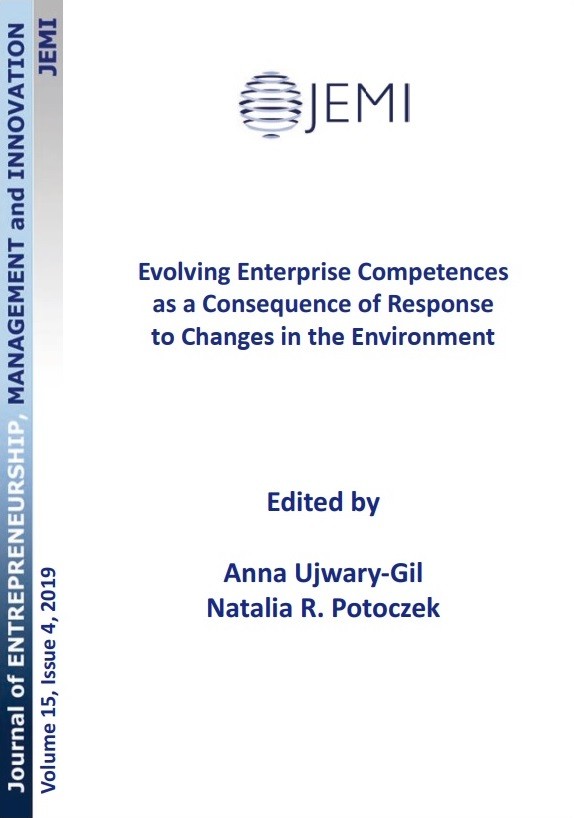Collaborative effect of workplace ostracism and self-efficacy versus job stress
Collaborative effect of workplace ostracism and self-efficacy versus job stress
Author(s): Ambreen Sarwar, Muhammad Ibrahim Abdullah, Muddassar Sarfraz, Muhammad Kashif ImranSubject(s): Social Sciences, Business Economy / Management
Published by: Fundacja Upowszechniająca Wiedzę i Naukę "Cognitione"
Keywords: workplace ostracism; stress; self-efficacy; conservation of resources theory; banking industry; Pakistan; Punjab
Summary/Abstract: This paper aims to illuminate the association between workplace ostracism and stress since ostracism is the most prevalent form of mistreatment in modern-day work settings. The study also investigates the moderating role of employees’ self-efficacy, gender, and work culture. Data was collected through a survey and structured questionnaires from employees working in both public and private sector banks in Pakistan. Data Analysis was conducted using statistical techniques such as bootstrapping, regression analysis and process macros. The study findings reveal that workplace ostracism is positively related to stress; and negatively related to employee's self-efficacy. Gender and organizational work culture have a moderating relationship. Self-efficacy mitigated the adverse effects of workplace ostracism in the form of stress, as self-efficacious employees tend to experience less stress in their workplace. Organizations must take account of the stress-mitigating impact of self-efficacy which is principally strong for producing acceptable performance since mistreatment and impolite behaviors cannot be evaded and prevented entirely in the social context of the contemporary workplace. Implications and future research directions are discussed in light of the findings.
Journal: Journal of Entrepreneurship, Management and Innovation
- Issue Year: 15/2019
- Issue No: 4
- Page Range: 107-138
- Page Count: 31
- Language: English

